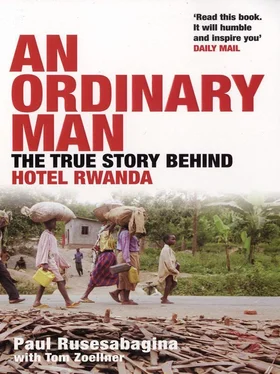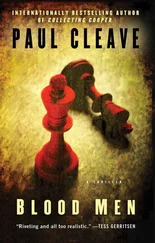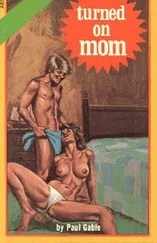Worlds intersect here. Whites and blacks mingle comfortably here inside a thin cloud of cigarette smoke and laughter. Rick’s American Café in Casablanca had nothing on the Mille Collines. I have seen cabinet ministers dispense appointments here, Army generals buying Russian rifles, ambassadors telling casual lies to presidential flunkies. The poolside is a place to advertise that you are a man with contacts and friendships. This is one of the best ways to climb the ladder in Kigali. These casual acquaintances are what can separate a wealthy man from a beggar.
I first laid eyes on the Mille Collines when I was nineteen years old. As a typical bored young man on my hill I hitched rides to Kigali whenever I could to wander the streets, browse through the markets, gawk at girls, and drink in the bars, all the typical idle pastimes of youth. The hotel had just been constructed and everybody was coming by for a look. It was then the tallest building in Rwanda and the first with an elevator. Few people had seen such a thing before. The big coup was to sneak inside and see if you could ride the elevator to the roof, where you could get a truly marvelous view of the valley below. Much to the envy of my friends back at home, I was able to charm my way past the bellboy and take that elevator ride up to the forbidden roof, where I savored a few stolen minutes of beauty. I remember feeling impressed with the hotel and proud of my country, thinking this place represented progress, and that a better way of life was on the way for all of us.
I had no idea just how large a role this strange new place was going to play in my life-or in the life of Rwanda.
I am a hotel manager by accident. The idea of having a career in the luxury hospitality business is certainly a laughable one for the son of a banana farmer from an impoverished African village. I never could have dreamed such a thing, nor could any of my friends.
I was supposed to have been a church pastor. This was a path that seemed preordained for me from a very young age. Everybody said I was suited for it because of my willingness to work hard, but even more because of my temperament. My peers in school-even those I wasn’t close friends with-seemed to trust me with their secrets, and I always gave them advice that seemed practical to them. (You might say it was igihango all over again.) The teachers were also impressed with my ability to memorize sections of the Bible and rephrase them in plain language. They encouraged me to become a man of the church. It was always seen as the way up, at least to the people who ran my school. They belong to the Seventh-day Adventist Church, a very distinctive branch of Christianity. The Sabbath is celebrated on Saturdays, for instance, and Adventists make it a habit to avoid eating shellfish, pork, and other foods forbidden to the Jews. The most devout Adventists are vegetarians. They also do not believe in the idea of hell and live in intense anticipation of the second coming of Jesus.
On the top of a high hill overlooking the beautiful Ruvayaga Valley, missionaries had built a church and started a school for boys in 1921. They chose that piece of land because it had been used as an execution ground by a previous mwami and nobody from our area wanted to live there for fear of bad luck or death. The missionaries wanted to show their new followers that the old religions of Rwanda had no power and that their god was the only one. They eventually moved away to spread the gospel elsewhere, but their hilltop school remained. We called it a “college, ” but it was intended for students of all ages. It was designed in a simple but elegant manner, with the academic buildings arranged around a quadrangle. A row of teachers’houses lined the broad dirt avenue that led into town, surrounded with the now mature orange and guava trees planted by the pioneer churchmen. The centerpiece of the campus was a small stucco church in the European cathedral style, painted a soft blue. There was a large main classroom hall that looked like a railway station divided into four classrooms, each with tall windows and furnished with rows of severe wooden desks that had seats and footrests built into them. The plaster walls were painted the same baby blue as the church. Each room had a rectangle of black paint on the front wall that served as the blackboard.
I learned French at age eight, English at thirteen. I still remember the cover of the first book I ever owned, a textbook called Je Commence, or I Begin. I struggled the first year and resolved to do better. The next year my scores were among the highest in my grade and I saw my father’s pride when my name was called during the honors assembly on the grassy quadrangle.
In religion classes they taught us Christian hymns. Some of them were tedious, but others were quite beautiful. My favorite was a mournful song called “The Salesman of Vaud” about a glamorous Swiss lady who wanted to buy some jewelry from a tattered old peddler, but all he had to give her was a copy of the Bible. She read it and her soul was saved. I had seen very few European ladies at the time, but those words seemed so sweet and wistful as we all sang them together inside the squat hilltop church:
Oh! Look at, my beautiful and noble lady,
These gold chains, these invaluable jewels.
You see these pearls of which the flame
A flash of your eyes would erase?
Though I seemed headed for a life of Christian modesty, there was always a streak of the entrepreneur in me. Even as a ten-year-old I was gathering up peanuts and reselling them for a profit. Hard work appealed to me. Where other teenage boys liked soccer and girls, my hobby was painting houses for people in the village. This was where I first learned the art of negotiation. I would start my price far above what I expected to receive and coyly ratchet it down according to what I saw in the face of the man who wanted his house painted. I earned a reputation as a tough bargainer but a conscientious painter. There was never any spot uncovered, and I used attractive shades of blue and indigo. I would get up very early in the morning to start a job, eat something small for lunch, and keep working through the fading light, until I could hear the gasoline generators in town start up.
Though I earned good money I was never prey to bullies or to jealous thugs. I suppose I was adept at using the same skill at negotiation that made house painting such a lucrative business. If anybody tried to threaten me I would simply look him in the eye and ask him in a firm but friendly voice, “Why?” The bully would have no choice but to engage me verbally, and this made violence next to impossible. I learned that it is very difficult to fight someone with whom you are already talking.
On September 13, 1967, at the age of thirteen, I was baptized in the waters of the Rubayi River and was allowed to choose a new first name for myself. This is a ritual that merges a bit of traditional Rwandan culture with the Christian rite. To the endless confusion of outsiders, members of a single family here do not usually share the same last name.
My surname, Rusesabagina, was chosen especially for me by my father when I was born. In our language it means “warrior that disperses the enemies.” I was allowed to choose a new first name on the day of my baptism and I chose “Paul, ” after the great communicator of the New Testament, the man who described himself in one of his letters as being “all things to all people.”
While I seemed to have a natural gift for languages and banter, I was unfortunately not gifted in the art of making conversation with girls. They had a powerful fascination for me from the time I was about twelve or so, but I think I would have rather had a burning ember pressed into my tongue than talk to a pretty girl. So I never had a girlfriend in the conventional sense. But around the time that I was leaving my teenage years behind me and becoming a man, one young woman in particular started to develop an interest in me. Her name was Esther and she was the daughter of Reverend Sembeba, one of the African pastors of the Seventh-day Adventist Church and a very powerful man in the region. I fell in love with Esther and we made plans to get married. Our plan was for me to attend seminary and become a minister and she would come with me wherever I was posted. Then we would start having children.
Читать дальше











![Paul Finch - A Wanted Man [A PC Heckenburg Short Story]](/books/702381/paul-finch-a-wanted-man-a-pc-heckenburg-short-sto-thumb.webp)
